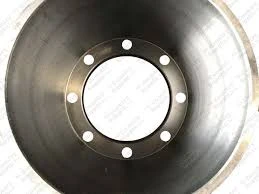
-
 Afrikaans
Afrikaans -
 Albanian
Albanian -
 Amharic
Amharic -
 Arabic
Arabic -
 Armenian
Armenian -
 Azerbaijani
Azerbaijani -
 Basque
Basque -
 Belarusian
Belarusian -
 Bengali
Bengali -
 Bosnian
Bosnian -
 Bulgarian
Bulgarian -
 Catalan
Catalan -
 Cebuano
Cebuano -
 Corsican
Corsican -
 Croatian
Croatian -
 Czech
Czech -
 Danish
Danish -
 Dutch
Dutch -
 English
English -
 Esperanto
Esperanto -
 Estonian
Estonian -
 Finnish
Finnish -
 French
French -
 Frisian
Frisian -
 Galician
Galician -
 Georgian
Georgian -
 German
German -
 Greek
Greek -
 Gujarati
Gujarati -
 Haitian Creole
Haitian Creole -
 hausa
hausa -
 hawaiian
hawaiian -
 Hebrew
Hebrew -
 Hindi
Hindi -
 Miao
Miao -
 Hungarian
Hungarian -
 Icelandic
Icelandic -
 igbo
igbo -
 Indonesian
Indonesian -
 irish
irish -
 Italian
Italian -
 Japanese
Japanese -
 Javanese
Javanese -
 Kannada
Kannada -
 kazakh
kazakh -
 Khmer
Khmer -
 Rwandese
Rwandese -
 Korean
Korean -
 Kurdish
Kurdish -
 Kyrgyz
Kyrgyz -
 Lao
Lao -
 Latin
Latin -
 Latvian
Latvian -
 Lithuanian
Lithuanian -
 Luxembourgish
Luxembourgish -
 Macedonian
Macedonian -
 Malgashi
Malgashi -
 Malay
Malay -
 Malayalam
Malayalam -
 Maltese
Maltese -
 Maori
Maori -
 Marathi
Marathi -
 Mongolian
Mongolian -
 Myanmar
Myanmar -
 Nepali
Nepali -
 Norwegian
Norwegian -
 Norwegian
Norwegian -
 Occitan
Occitan -
 Pashto
Pashto -
 Persian
Persian -
 Polish
Polish -
 Portuguese
Portuguese -
 Punjabi
Punjabi -
 Romanian
Romanian -
 Russian
Russian -
 Samoan
Samoan -
 Scottish Gaelic
Scottish Gaelic -
 Serbian
Serbian -
 Sesotho
Sesotho -
 Shona
Shona -
 Sindhi
Sindhi -
 Sinhala
Sinhala -
 Slovak
Slovak -
 Slovenian
Slovenian -
 Somali
Somali -
 Spanish
Spanish -
 Sundanese
Sundanese -
 Swahili
Swahili -
 Swedish
Swedish -
 Tagalog
Tagalog -
 Tajik
Tajik -
 Tamil
Tamil -
 Tatar
Tatar -
 Telugu
Telugu -
 Thai
Thai -
 Turkish
Turkish -
 Turkmen
Turkmen -
 Ukrainian
Ukrainian -
 Urdu
Urdu -
 Uighur
Uighur -
 Uzbek
Uzbek -
 Vietnamese
Vietnamese -
 Welsh
Welsh -
 Bantu
Bantu -
 Yiddish
Yiddish -
 Yoruba
Yoruba -
 Zulu
Zulu
scooter drum vs disc brakes
Scooter Drum Brakes vs. Disc Brakes A Comprehensive Comparison
When it comes to scooter braking systems, one of the most debated topics is whether to opt for drum brakes or disc brakes. Both types of brakes have their own advantages and disadvantages, and understanding these can help you make an informed decision based on your riding needs and preferences.
Drum Brakes The Traditional Choice
Drum brakes have been the traditional choice for many scooters for decades. They consist of a cylindrical drum that rotates with the wheel and brake shoes that press against the drum to create friction. One of the main advantages of drum brakes is their simplicity and lower cost of manufacturing. This makes them a viable option for budget-friendly scooters.
Another benefit of drum brakes is their performance in wet conditions. Their enclosed design provides better protection from water and debris, which can lead to consistent braking performance. Additionally, drum brakes tend to wear more slowly compared to their disc counterparts, requiring less frequent replacement.
However, drum brakes also have their downsides. They can be less effective at dissipating heat, leading to brake fade during extended use, such as during long downhill descents. This can make them less reliable for sporty riders or those tackling steep hills frequently.
scooter drum vs disc brakes

Disc Brakes The Modern Alternative
Disc brakes have gained popularity in recent years, particularly in higher-end and performance-oriented scooters. They consist of a metal disc that rotates with the wheel and a caliper that houses brake pads pressing against the disc. One of the primary benefits of disc brakes is their superior stopping power and heat dissipation capabilities. This makes them ideal for aggressive riding and long journeys.
Moreover, disc brakes provide more consistent performance in varying weather conditions. They are less susceptible to brake fade and perform well even in wet environments thanks to their open design that allows water and debris to easily wash away. This can be particularly beneficial for riders who face unpredictable weather.
On the downside, disc brakes are usually more expensive to manufacture and maintain compared to drum brakes. They also require more regular maintenance as the brake pads can wear out faster, particularly under heavy use.
Conclusion
Ultimately, the choice between scooter drum brakes and disc brakes comes down to your specific riding style and requirements. If you prioritize budget, simplicity, and reliable performance in diverse conditions, drum brakes may be suitable for you. However, if you seek superior stopping power and ride aggressively, disc brakes would likely be the better option. Consider your usage and preferences to select the brake system that best fits your scooter needs.
-
Rear Drum Brakes Maintenance TipsNewsAug.04,2025
-
Key Components Affecting Brake Drum FunctionNewsAug.04,2025
-
Important Inspection for Truck Drum BrakeNewsAug.04,2025
-
How to Prepare for Changing Rear Drum BrakesNewsAug.04,2025
-
Essential Tools for Cleaning Drum Brakes ProperlyNewsAug.04,2025
-
Brake Drum Function GuideNewsAug.04,2025
-
Safety Features of Red Brake DrumsNewsAug.01,2025
